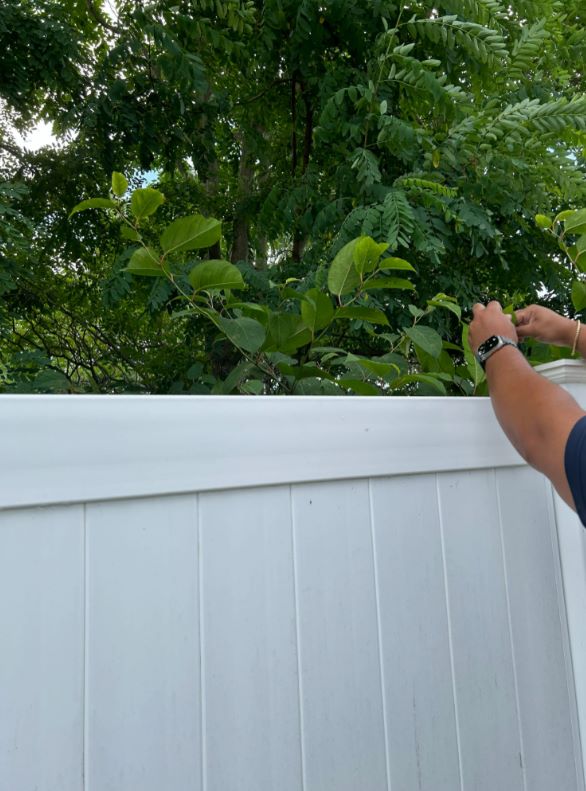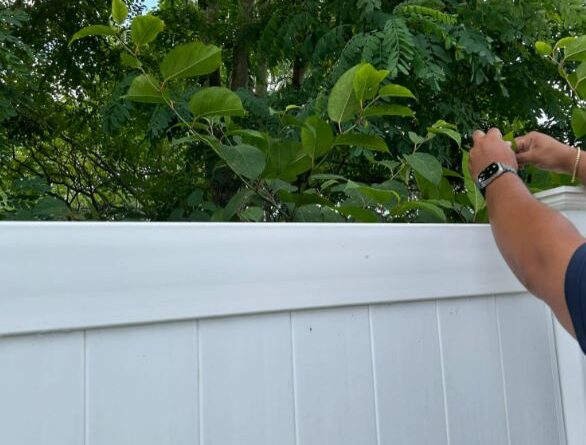New home owner raises concerns after home inspector discovers nightmare plant growing near property: ‘I’d call an expert’
A prospective home buyer in Massachusetts recently sought advice on the r/landscaping subreddit after encountering a type of invasive plant on a property they were already under contract to maintain. we could.
“During today’s home inspection, the inspector found Japanese cables around the property and in front of the neighbors garage,” the photo captioned. “The property is near a salt flat. Is this a scam? I’ve read horror stories but I’m not sure if they’re exaggerated.”

Horror stories about Japanese knotweed abound. Like many invasive plants, Japanese knotweed was brought to the United States as an ornamental in the 1800s. However, outside of its natural environment, it became very difficult to preserve it.
The National Park Service writes: “Japanese knotweed grows in thick clumps and reaches an impressive height very quickly. This makes it difficult for herbivores to feed on or trample them to maintain them. are under control,” the National Park Service wrote. “Its roots are also incredibly tough, and the only way to get rid of Japanese knotweed permanently is to completely dig up and remove the rhizomes, which is almost impossible.”
However, near-impossible is not the same as impossible, and many commenters on the Reddit thread shared success stories – albeit working with difficult – about dealing with the dreaded knotweed.
“If it’s tall, prune it. Spray it. Dig another one. Leave it farther away. Cut it. Spray it. Dig another one. Leave it farther away,” one commenter wrote. “Rinse and repeat. 2 full seasons for the main patches and then another year for the stragglers, but like no season is given to it.”
“We ended up hiring experts but they told us what they do – they spray it all when it starts to bloom at the end of summer with a triclopyr/glyphosate mixture. They start using a fire hose attached to a tank truck. go back WAY later, small, and slow this year after only one application, and they are doing another one this year,” another wrote, even considering the environmental and health concerns. beauty around glyphosate – an important ingredient in Roundup – and unconvincing results, this method. it is probably not a way to control an invasive species.
In fact, any solution that requires spraying toxic chemicals in your yard is no longer appropriate, especially if you are near a pond or other body of water. A few other commentators came down on the dealbreaker side.
One wrote: “All things being equal, with some property you like, knotweed can be a nuisance to me. “We had it next to our property and it was towards the concrete foundation. It took many years to apply a different type of pesticide every year by a licensed landscaping company. We weren’t allowed to DIY under local laws given the toxicity.”
“Since I was so close to the hurricane, I might as well call an expert who specializes in the removal and preservation of rare species,” another chimed in.
Whenever you plant new plants, it’s always a good idea to do your research first and make sure you’re not letting something grow that will require years of hard work and/or tons of money. to eliminate. Focusing on native plants will support local microbes and ecosystems — and make your life easier in the long run.
Join our free newsletter for easy tips on save more and waste a littleand don’t miss this great list of easy ways to help yourself while helping the planet.
#home #owner #raises #concerns #home #inspector #discovers #nightmare #plant #growing #property #call #expert
